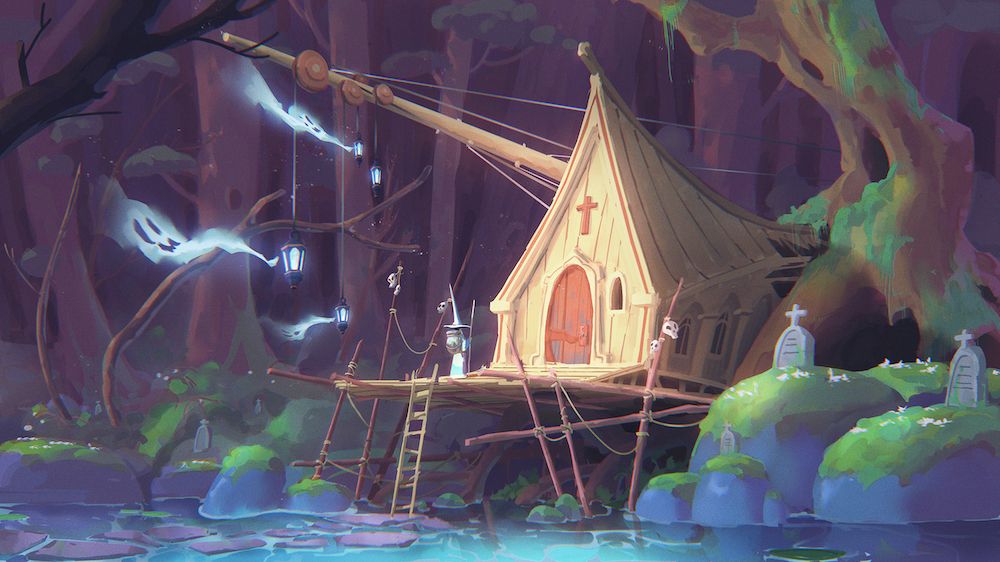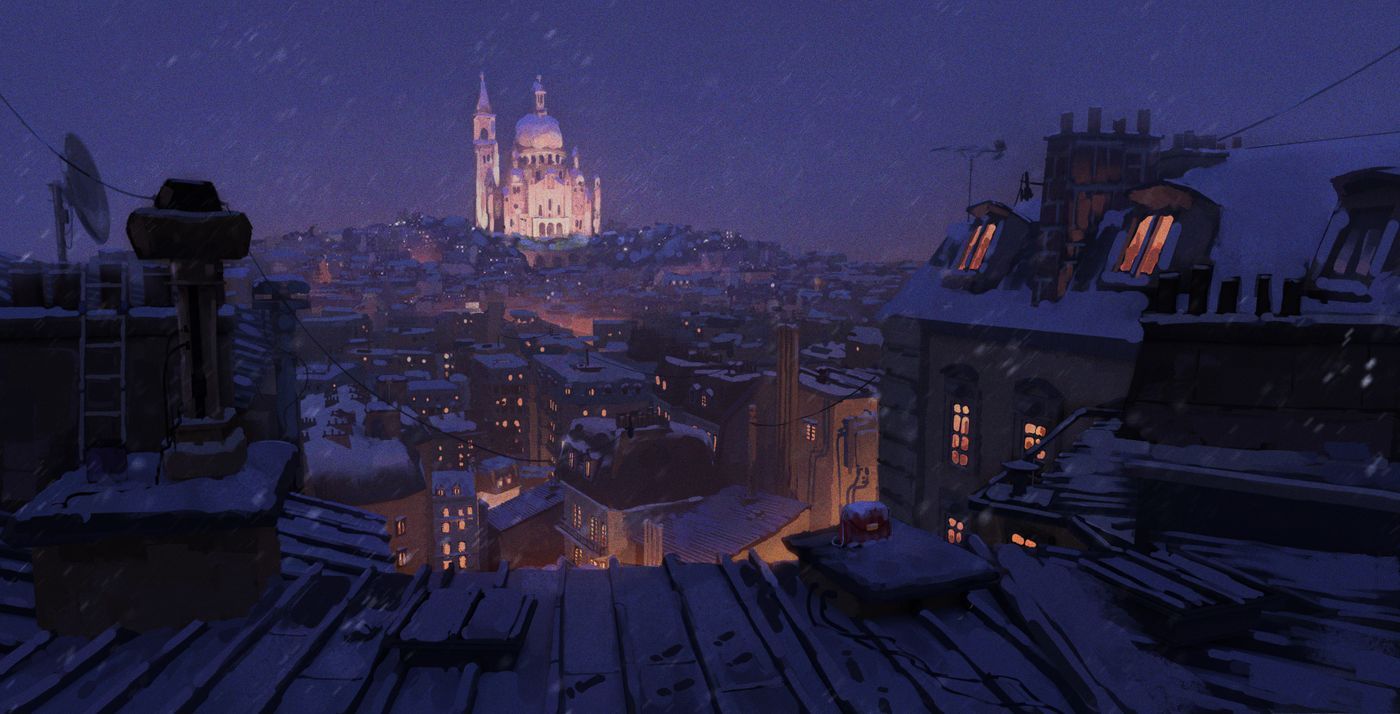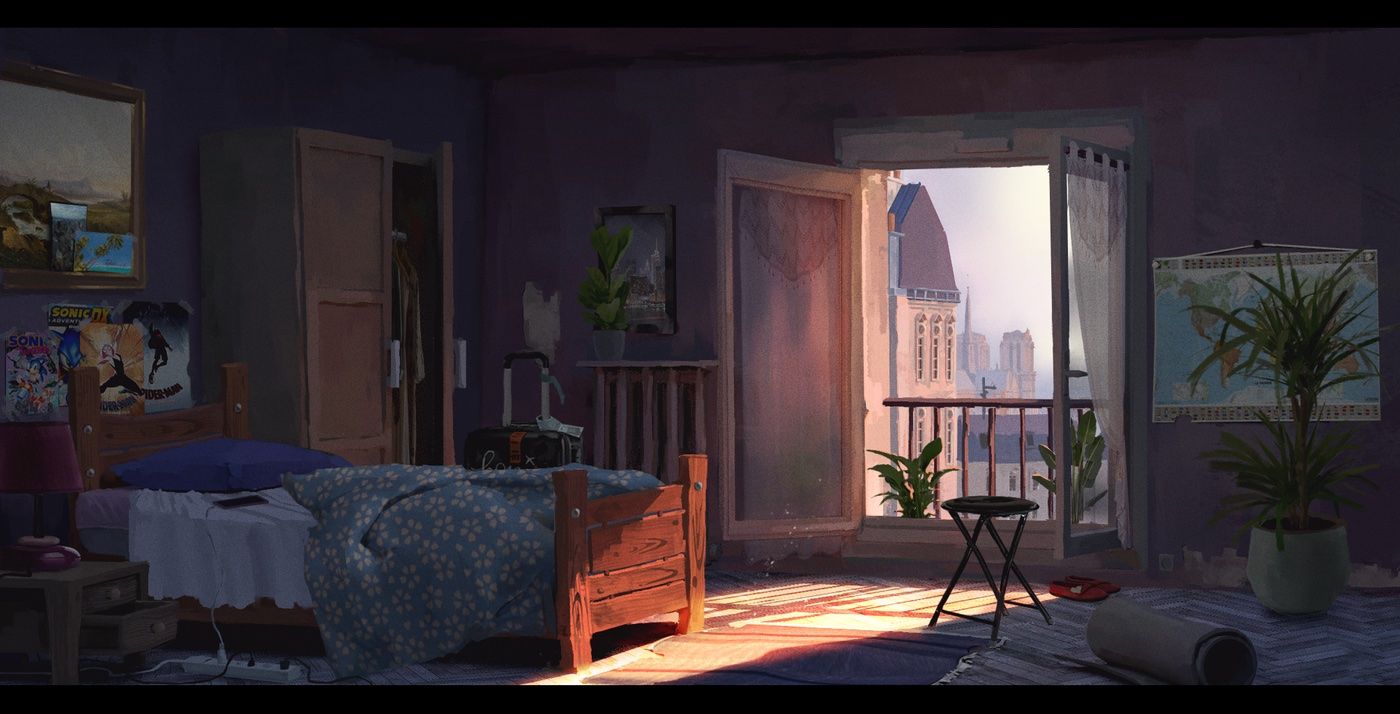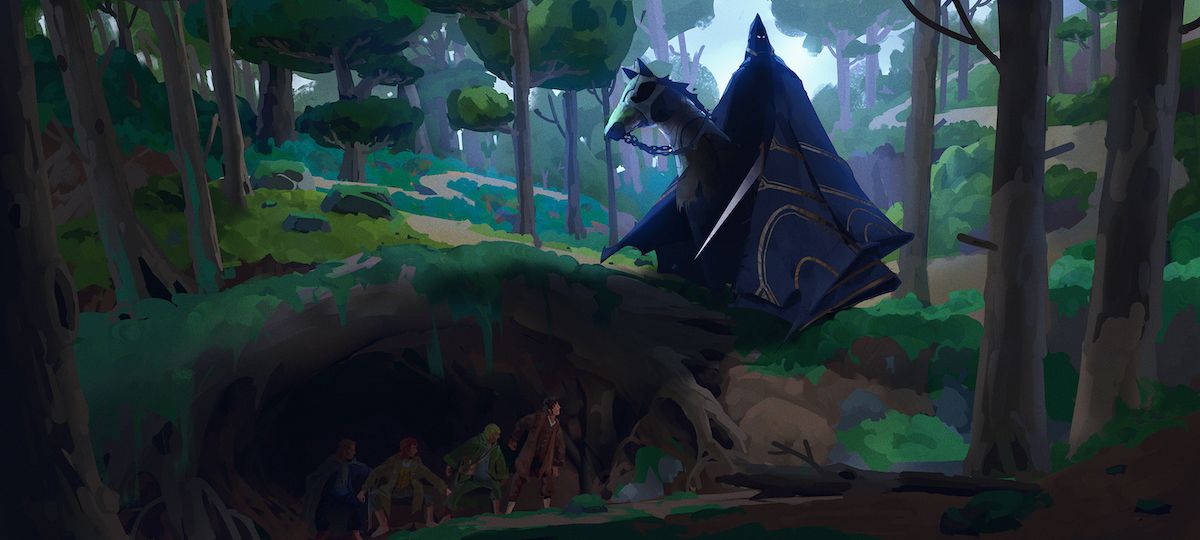
Curating an Art Portfolio: Tips From a Games Industry Environment Concept Artist
Gain valuable insights as Florent Boston shares tips on curating portfolios and navigating the competitive landscape of the Games Industry.

Gain valuable insights as Florent Boston shares tips on curating portfolios and navigating the competitive landscape of the Games Industry.
Florent Boston, a graduate of Isart Digital, is currently making waves in the Games Industry as an Environment Concept Artist. In this article, we had the opportunity to delve into his exceptional student portfolio on The Rookies and gain valuable insights. Florent generously shares tips and advice for aspiring artists, offering guidance on curating a compelling portfolio and putting their best foot forward in the competitive world of game art.
I am a Concept Artist/Illustrator mainly working in the Video Games and Animation industries but also do work for advertising and publishing - everything that is related to the environment or storytelling.
I mostly create environments in a semi-realistic/semi cartoon style. I have always liked creating a universes since my childhood and taking people on a journey through my art.
I did an applied art high school degree before going to the school of Video Game & Animation 3D-FX, Isart Digital where I graduated. I followed the Game Art section learning drawing fundamentals, digital painting, and 3D basics and then did my Master in 2D Game Art.
Here are two artworks from my Paris and Chill series, which was a big change in my portfolio. The aim was to create scenes from everyday life and make them interesting.


I also wanted to show that I could create different kinds of environments. The process involved making a simple 3D block with basic colours and lighting in Maya, and then painting over with Photoshop. It was a new technique that I learned during my Master and I use it a lot now.
I only put work up that I want to be hired for. I ask myself if I want to be hired to do the type of work I am creating, and if I enjoy the process, I post it! Otherwise, I don't. Of course, I also have to show as many variations of what I like as possible to have a broad portfolio.
For example, I won't include fully realistic work because I'm not used to it. But I will show cartoons, semi-realistic drawings, semi-cartoon drawings, etc.
I like to show that I can do many different types of environments, indoors, outdoors, large, small, with different moods: creepy, calm, happy...I only put finished projects, and I usually show the process in my post.
I won't put work up that doesn't resonate with me. I try to keep a harmony of skills in my portfolio, I won't put up character design because I'm an environmental concept artist. Thanks to this, recruiters know what my skills are and they're not lost.
We all had internships to take on, so we took courses on résumés, writing cover letters, and tips for our portfolios. Before finishing school, I was already working and preparing for the industry. We were also offered professional English classes.
I also have to say that school isn't everything; I think you have to work for yourself in a 50/50 ratio. I'm not just talking about creative work, but also networking, social media presence, and so on. I think there are a lot of talented artists who can already work, but who don't show themselves off enough.
Yes, during the master's program, we had several instructors who worked in the industry and who brought a fresh perspective, talking about the industry, giving advice on portfolios and so on. We also had networking events at the school.
I think what stood out for me was the Rookie Awards. It's a great way of motivating people to share their work and not hide everything.
We can see the work of other "Rookies", be inspired, and chat with them.

It was also a way of recapping my favourite works and explaining the process, etc.
I earned badges and it gave me great visibility and credibility with recruiters. I also liked the fact that we had a certificate that we could share on social media channels. The fact that The Rookies shares our work on their social media channels helps a lot too! The grade progression system, starting from Debut to Rookie is also very interesting, as it's satisfying to see the progress you've made!
My advice would be not to neglect the basics, everything is becoming faster with the development of technology, but I think it's important to have the basics before going any further. And don't forget your health and your activities outside of drawing, as well as finding a balance, it will feed your creative energy.
I'd tell myself not to neglect general and artistic culture.
You can see more of Florent's work and reach out to him here.